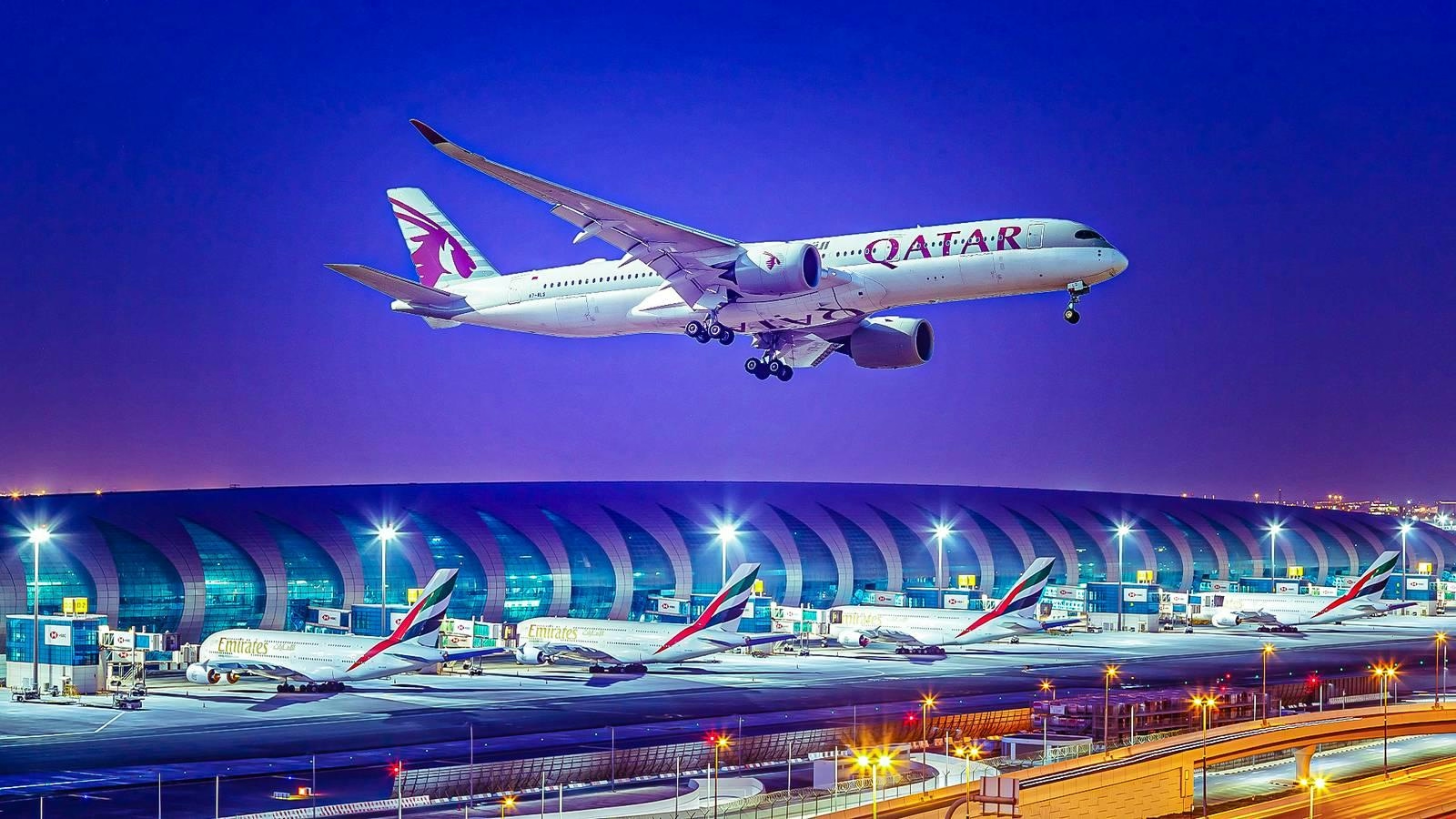AeroGenie — Your Intelligent Copilot.
Trending
Categories
Which Airline Operates the Most Widebody Aircraft?

Which Airline Operates the Most Widebody Aircraft?
Only five airlines operate more than 1,000 widebody, twin-aisle aircraft combined, playing a pivotal role in shaping international air travel. These carriers—Emirates, United Airlines, Qatar Airways, Delta Air Lines, and Turkish Airlines—have developed their extensive fleets through distinct business strategies, geographic advantages, and targeted investments, each influencing global connectivity in unique ways.
According to The Aviation Brief, Emirates leads with a fleet of 264 widebody aircraft, followed by United Airlines with 227, Qatar Airways at 199, Delta Air Lines with 176, and Turkish Airlines operating 154. Widebody jets remain essential to long-haul aviation, enabling airlines to transport large numbers of passengers and cargo across continents and oceans. The carriers with the largest widebody fleets often set industry benchmarks for comfort and service, while also serving as key representatives of their respective countries on the global stage.
Turkish Airlines: Ambitious Expansion and Global Reach
Turkish Airlines is distinguished by its aggressive expansion and strategic fleet investments. Currently operating over 200 Boeing aircraft, including the 787-9 Dreamliner and 777 models, the airline has placed a firm order for up to 75 additional Boeing 787 Dreamliners. This substantial acquisition is poised to nearly double its Boeing fleet and significantly broaden its global network. The market has responded positively to this bold move, signaling strong confidence in Turkish Airlines’ growth prospects and prompting competitors to reassess their own fleet strategies.
With existing contracts for both Airbus and Boeing aircraft, Turkish Airlines anticipates its widebody fleet will exceed 250 aircraft by the end of the decade. This expanded capacity will facilitate increased flight frequencies to key regions such as Africa, India, and Southeast Asia, as well as the introduction of new nonstop routes to Australia, a market the airline has yet to penetrate.
In parallel with fleet growth, Turkish Airlines is upgrading its cabin offerings. The airline plans to debut a new business-class suite featuring privacy doors on incoming Airbus A350s, while retrofitting its Boeing 777-300ERs to enhance passenger experience. The introduction of premium economy on the A350-1000s will provide a competitive mid-tier product, complemented by WiFi and next-generation inflight entertainment across all cabins.
On the cargo front, Turkish Airlines is expanding operations at Istanbul Airport by leveraging a mixed fleet of A330-200Fs and 777Fs, alongside the belly cargo capacity of its new passenger widebodies. This hybrid approach offers a cost advantage compared to airlines operating solely freighters or passenger aircraft.
Supporting this growth, Turkish Technic’s maintenance complex is undergoing expansion with new widebody bays, a composites center, and advanced engine test facilities. Sustainability is also a key focus: an on-airport sustainable aviation fuel (SAF) blending facility is scheduled to begin operations next year, with the airline committing to an all-SAF first departure to every continent by 2027.
Delta Air Lines: Atlanta’s Armada
Delta Air Lines continues to modernize its widebody fleet with the introduction of new Airbus A350 and A330neo aircraft, all equipped with the Delta One Suite, Premium Select recliners, upgraded seatback screens, and complimentary high-speed WiFi. These enhancements are being retrofitted across the existing fleet, underscoring Delta’s commitment to passenger comfort and technological innovation.
As competition intensifies among the world’s largest widebody operators, the investments made by these airlines not only shape their individual futures but also influence the broader trajectory of the global aviation industry.

Emirates Unveils Cabin Design for New Boeing 777X

Eighteen Years On, the Airbus A380 Remains Central to a $34 Billion Airline

How a boom in luxury airline seats is slowing down jet deliveries

Navitaire Outage Attributed to Planned Maintenance

DigiYatra Debuts Outside Aviation at India AI Impact Summit

Vietnam Orders Strengthen Boeing’s Commercial Outlook

Airbus Signals Uncertainty Over Future A400M Orders

JobsOhio Awards $2 Million Grant to Hartzell Propeller for Innovation Center

Collins Aerospace Tests Sidekick Autonomy Software on YFQ-42A for U.S. Air Force CCA Program

How the Airbus A350-1000 Compares to the Boeing 777
